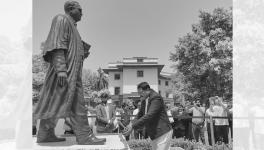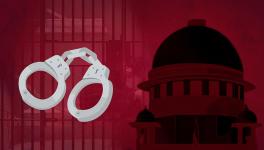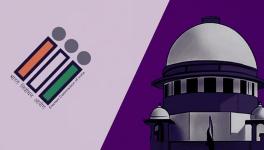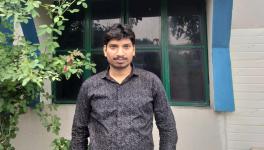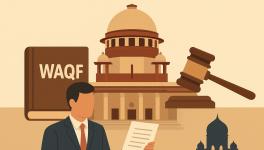Elgar Case: SC Asks if Gonsalves, Ferreira Verdict ‘Formula’ can be Applied to Jyoti Jagtap
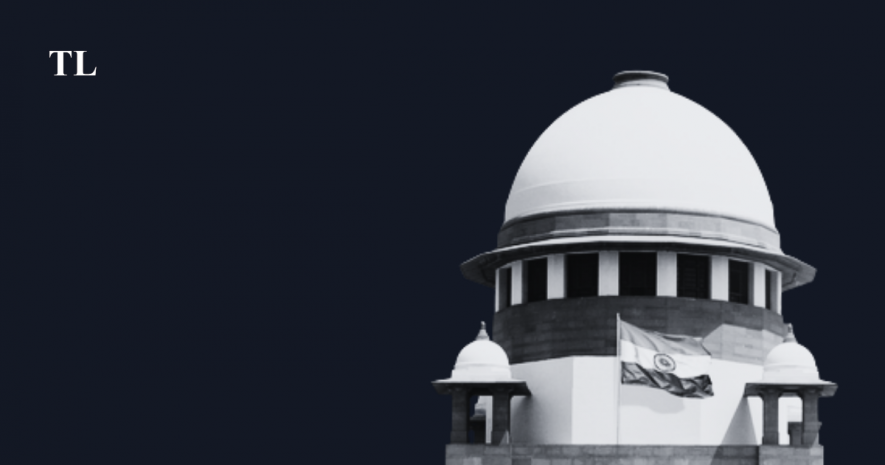
While granting bail to Vernon Gonsalves and Arun Ferreira, the Supreme Court had observed that the materials eluded to as part of incriminating evidence against the accused persons cannot justify their continued custody.
—
On Tuesday, the Supreme Court inquired whether the “formula” adopted in granting bail to Vernon Gonsalves and Arun Ferreira can be applied to the bail plea of anti-caste activist and musical performer, Jyoti Jagtap.
A division Bench of the Supreme Court comprising Justices Aniruddha Bose and Sanjay Kumar was hearing Jagtap’s plea for grant of regular bail.
Jagtap, Gonsalves and Ferreira are accused in the Bhima Koregaon–Elgar Parishad case and charged under the Unlawful Activities (Prevention) Act, 1967 (UAPA).
Jagtap has been incarcerated as an undertrial since September 8, 2020, and is lodged at the Byculla jail in Mumbai.
Gonsalves is a trade unionist, activist and academic, while Ferreira is an activist and a lawyer. The duo was granted bail by the Supreme Court on July 28.
During the previous hearing, on July 11, the Bench had noted that Jagtap’s bail plea would be taken up after judgments on the bail pleas of Gonsalves and Ferreira for the grant of regular bail, reserved at the time, were delivered.
Today, Justice Bose referred to the judgments and stated that the bail was granted based on a “formula”. He remarked that the question to be enquired is whether Jagtap’s plea “fits in that formula”.
At the request of the National Investigation Agency, the Bench allowed it time to file a counter-affidavit.
The agency was directed to file the affidavit by September 14.
What was the rationale for granting bail to Gonsalves and Ferreira?
While granting the bail to the duo, the Bench comprising Justices Aniruddha Bose and Sudhanshu Dhulia had delved into the surface-level analysis of the evidence in ascertaining whether reasonable grounds exist for believing that the accusations are prima facie true, as provided under Section 43D(5) of the UAPA.
The Bench had observed that the materials eluded to as part of incriminating evidence against the accused persons cannot justify their continued custody.
In particular, the bail judgment holds that the letters recovered from the other co-accused persons, witness statements, or the mere possession of inflammatory literature, even if it propagates violence or promotes the overthrow of a democratically elected government, does not prove that the two accused were involved in terrorist acts within the definition of the UAPA.
The judgment says that there is no evidence proving the intention to further any organisation’s terrorist activities.
Notably, upholding Article 21 of the Constitution in the context of their long incarceration of five years, the court decided that the allegations cannot justify their continued detention.
Blanket application of the ‘formula’
A public interest litigation (PIL) filed by the late Father Stan Swamy in 2017 in the Jharkhand High Court may serve as a path in the direction of ending the long incarceration of other accused persons who are held in custody or denied bail on similar grounds in the Bhima Koregaon case as well as several such cases.
The PIL, which is the result of research and investigation conducted between 2012 and 2016, outlines the prolonged detention of the members of the Scheduled Castes, Scheduled Tribes and Other Backward Classes across jails in Jharkhand.
The petition highlights the probability of several cases ultimately resulting in acquittals in absence of concrete and substantive evidence, as well as due to non-compliance with arrest and post-arrest procedure laid down in D.K. Basu versus State of West Bengal (1997).
The petition calls for the constitution of a commission of inquiry to conduct an in-depth and comprehensive fact-finding inquiry on undertrials in Jharkhand and record the present state of affairs.
Thus, in line with Swamy’s PIL, perhaps broad guidelines facilitating blanket implementation of Gonsalves and Ferreira’s bail judgment can be the way forward to ensure that justice can finally take charge through the grant of bail to thousands incarcerated on similar grounds under the UAPA.
Background of Jagtap’s case
On February 14, 2022, a special National Investigation Agency (NIA) court denied bail to Jagtap and three other co-accused in the Bhima Koregaon case. The court maintained that the accused had hatched a “serious conspiracy” to create unrest in the country.
On October 17, 2022, the Bombay High Court rejected her appeal which was filed against the Order of a special court under the National Investigation Agency, Act, dated February 14, 2022, under which her bail application was rejected.
According to the high court, Jagtap was involved in a “terrorist act” by organising the Elgar Parishad event and associating with prominent members of the banned organisation Communist Party of India (Maoist).
Trial is yet to begin in the Bhima Koregaon case. The prosecution has filed a chargesheet exceeding 5,000 pages and intends to cross-examine at least 200 witnesses. Several of the accused persons have now spent almost five years in judicial custody without trial.
Three of the accused persons, Sudha Bharadwaj, Varavara Rao and Anand Teltumbde have managed to secure bail so far. Father Stan Swamy, who was a co-accused, passed away due to Covid in custody in June 2021 after incarceration of over seven months.
An investigation by Arsenal Consulting, a leading, independent expert firm on digital forensics, has revealed that sophisticated malware was used to plant the digital evidence that forms the basis for the prosecution’s case on the devices of two of the accused persons in the case, Gadling and Wilson.
Arsenal’s findings were published in four reports in 2021.
Sarah Thanawala is a staff writer at The Leaflet
Get the latest reports & analysis with people's perspective on Protests, movements & deep analytical videos, discussions of the current affairs in your Telegram app. Subscribe to NewsClick's Telegram channel & get Real-Time updates on stories, as they get published on our website.










